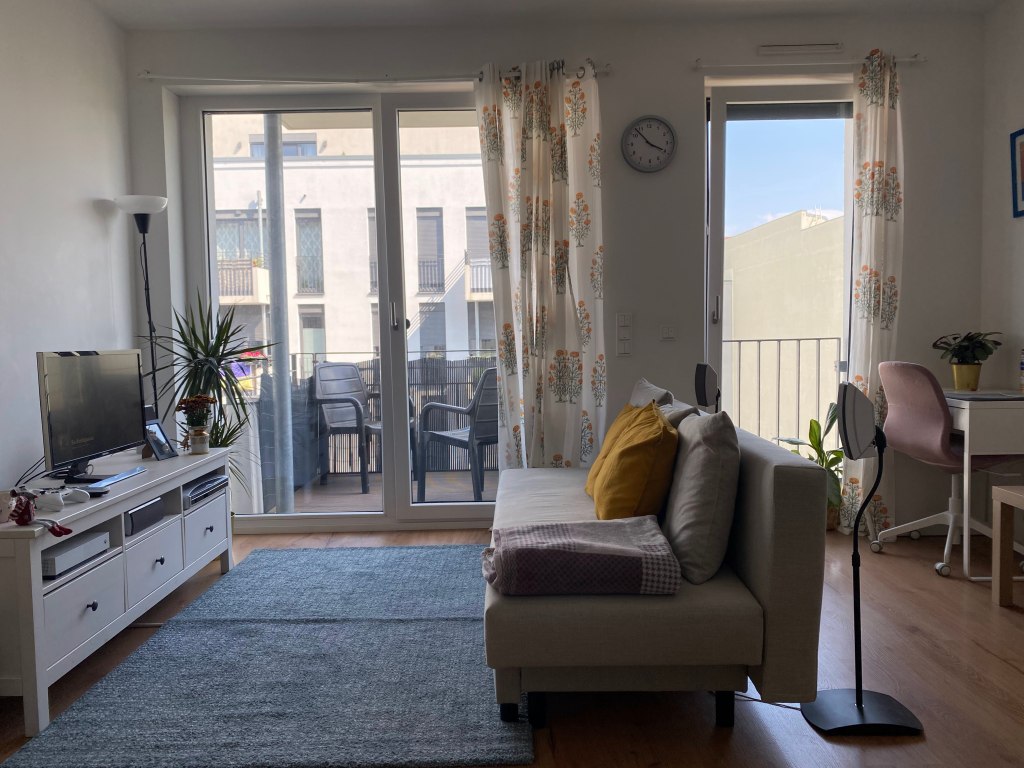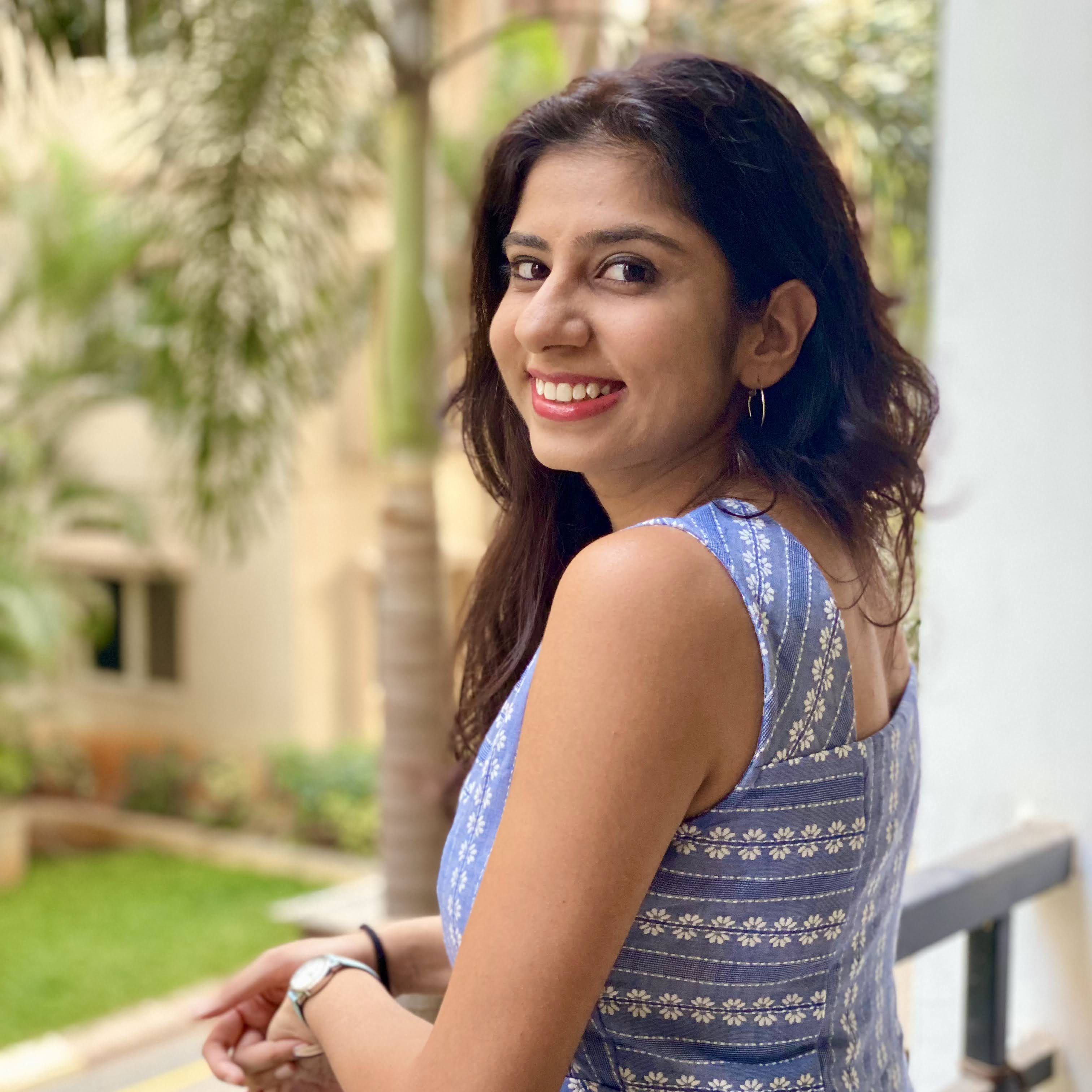
I write this to you on a warm summer evening from a quiet house in Berlin. Our home is not too big, mostly white, and has huge glass windows to let the sun in. It’s 9:30 pm and it’s still bright out. Bees are buzzing around the flowers adorning my neighbour’s balcony.
Most houses here don’t have ceiling fans, and definitely no ACs. Late at night, it gets eerily quiet. It’s so quiet I can hear the dull drone of trains rolling in the station a few kilometres away. I like to turn on the dishwasher at night, just for some white noise in the background.
Sometimes as I go about my day, German words pop into my head. Meine Wohnung. My apartment. Meine Muttersprache. My mother tongue. Das Schlafzimmer. The bedroom. I get curious to know what certain words are called in German, and I’m constantly on the lookout for more.
I like how my brain is slowly—at a glacial speed—making room for a new language. I like how I can recognise more words now, how I can give directions to a lost soul on the street or ask basic questions at a store.
Learning a new language is an art and some people do it logically, methodically. My ADHD brain can only do it in the way it knows best: messily, weirdly, randomly. I learn and immediately forget. I struggle to retain information. I don’t remember grammar and rules, but I remember words I come across in songs, billboards, or movies. And somehow they stick. Some words have a way of making their way into your heart, no questions asked. While some make you stop and gawk at how incredulous they look.
German is full of words that sound nothing like their meaning. The word for ‘surprise’ is ‘Überraschung’, for a ‘vacation’ is ‘urlaub’ and for an invitation is ‘Einladung’. So many words end with ‘ung’, ‘icht’ and ‘cke’ it boggles the mind. But then there are also those wonderful words that make you go “Oh, of course! That makes sense!’ Like the word for ‘gloves’ is ‘Handschuhe’ (hand shoes), ‘ambulance’ is Krankenwagen (car for the sick) and ‘refrigerator’ is Kühlschrank (a cool cabinet).
By the way, adding a ‘chen’ to words makes them cuter. Like saying ‘Hallochen’ instead of ‘Hallo’. A term of endearment like ‘darling’ is ‘Schnucki’. Aww ❤
Learning a language through a textbook is one thing and applying it in practical life is another. I hadn’t realised how little my brain processes when I’m being spoken to in a language I’ve just about started learning. It takes me 30 seconds to understand, 45 to form my own broken sentence, and 2 whole minutes to realise what I’d said was wrong. People inevitably switch to English and you feel a mix of relief and failure. You resolve to do better next time. Until you’re in a crowded supermarket trying to talk to the cashier with a long queue behind you. Mortifying.
Being in a new country that speaks a different language is like watching a movie without ever having seen the trailer or the cast. And of course, there are no subtitles. Even if the German equivalent of Brad Pitt comes in front of me, I’d be none the wiser. Ignorance of the language means ignorance of pop culture, beauty, art, politics, books, music—in the way it is meant to be understood. I may speak the language but I don’t feel it yet. I just make some sounds, hoping the listener will understand enough to receive the message. But I hope to get there soon.
I always thought German was a harsh language. Mainly because of how it was portrayed in the media. But the other day when I was in the U-Bahn, I heard a mum talking to her kids, and all those preconceived notions melted away. It made my heart flutter and I couldn’t help smiling at them. To truly fall in love with a language, listen to it at leisure. Eavesdrop on families in parks or lovers in the train.
It’s a strange feeling to walk around a city knowing that people’s inner monologues are so different from yours. That their lives, backgrounds, experiences, memories are nothing like yours. That they probably don’t know who Chacha Chaudhary is, or Sachin Tendulkar or AR Rahman. (Although some of them do seem to know Shahrukh Khan).
They don’t know the old Hindi songs that make you cry or the comedy shows you grew up watching with your parents. They don’t know what hot pooris and kheer taste like. Or the smell of monsoon, or paddy fields or chaat.
When I listen to German music, or watch a documentary on Angela Merkel or watch videos of the Berlin wall falling down, I feel a thrill. I feel a bit more connected with the people. I like to imagine what that day 32 years ago must have felt like when Germany was reunited. The very year I was born.
Germany is slowly making its way into my psyche. After spending 30 years in your home country, you tend to get set in your ways. But I came here with open arms, and I want this place to do things to me. Good things. Memorable things. I’m ready to learn more about its people, its idiosyncrasies, its odd rituals and habits.
And learning German is an important part of it. I’m trying not to rush the process, and not to give up entirely. I want to keep the intrigue alive, no matter how much the umlauts and the compound words scare me. One day, I’ll come back here and write a whole blog post in German. Fingers crossed! 🙂
P.S. In German, you don’t cross your fingers or say ‘fingers crossed’. You press your thumb under your fingers and say ‘Daumen drücken’ (thumb pressed!) I love that!

4 responses to “Love languages”
You’ve artfully captured both sides to learning a new language and culture in this post, Asth. I too experience the same dichotomous feeling of warmth and distance in any given social situation, and how people react to me trying has a big effect on how I come away feeling at the end of an interaction. Here’s to learning German becoming easier and more enjoyable for both of us!
LikeLike
I loved this. How you poetically captured Struggle and wonder – beautiful!
LikeLike
Astha, this is a lovely capture of your experience. You have taken the reader through your journey for understanding their culture through their language. It also shows how an open mind can overcome the preconceived notions. New words can be learnt through watching them speak or even watching their TV programs. Well done!
LikeLike
Such an inconvenient topic and a difficult lived experience, and yet, you end up making the reader feel good about the language, the land and its people.!!!
Brilliantly penned.
LikeLike